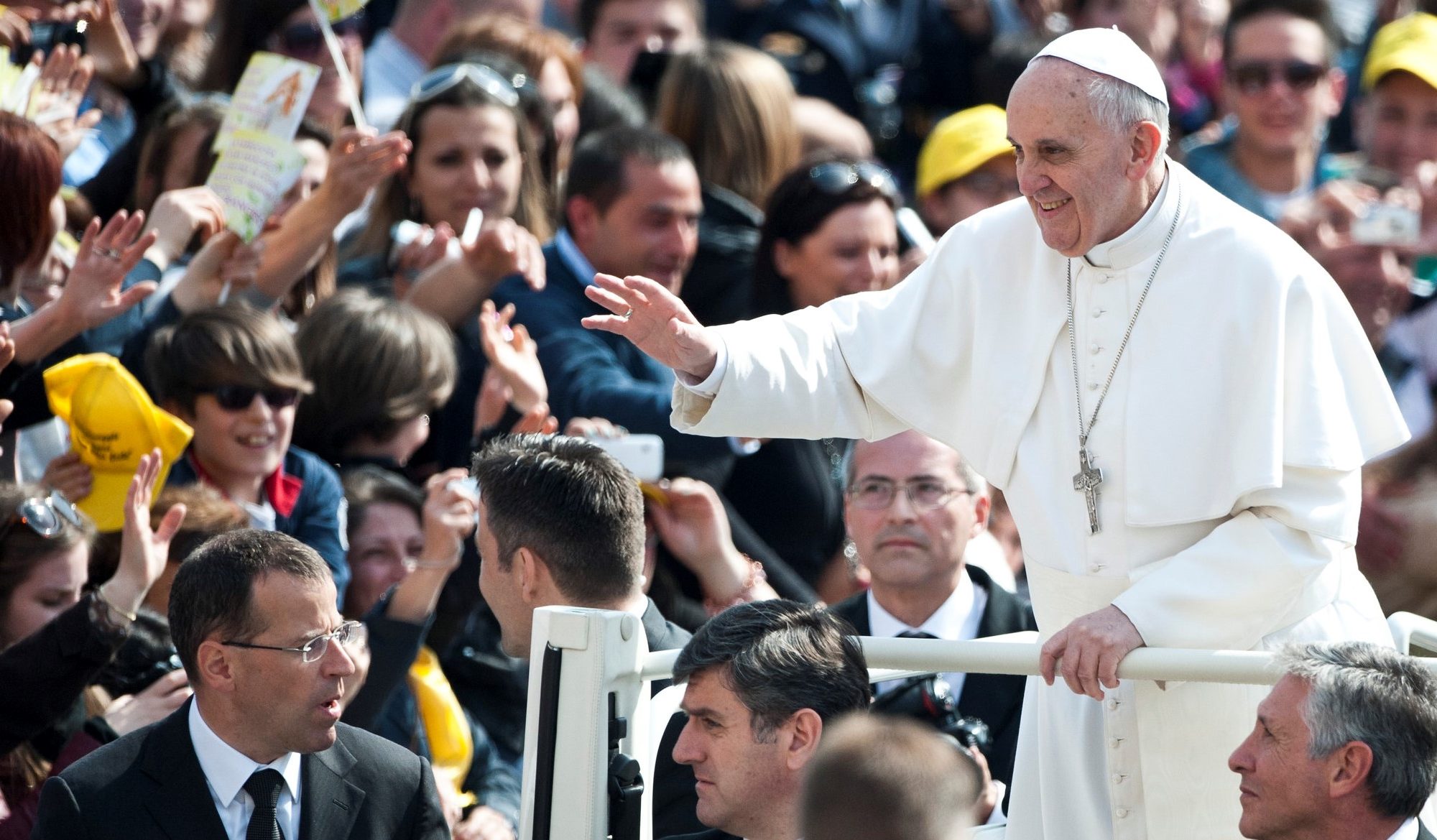By Henning Melber
Designs and practices of developmental cooperation continue to maintain an almost exclusive focus on aspects of physical and economic well-being. While these are important necessary dimensions, such reduced perspective neglects the important spiritual source of individual mindsets in human beings. After all, resilience as one of the most important motivating sources of energy for survival, is strongly inspired by spiritual dimensions of belief systems. Facing misery with a determination to not give up and accept the daily challenges requires hope. Religion, or rather faith, is a substantial ingredient to survival. It therefore should not be ignored as a key element in efforts to bring about better living conditions for people in need.
Papal encyclical opening the doors to post-development
Faith is also a substantial ingredient to walking the talk. It encourages key notions and core values such as empathy, solidarity, and respect for life as well as compassion. Let’s illustrate this with an example close to my own cultural background and socialisation, although I am not a Catholic. My references are from the moral theology as manifested in the papal encyclicals of the Holy See, which among others promote fundamental values of universal relevance – notwithstanding the ambiguities and contradictions when contrasted with some of the positions held by the church. Already Pope Paul VI stated: “The real solidarity of all does not only bring advantages with it, but also obligations.” And Benedict XVI reminded us: “The patterns of behaviour in which humans treat environment, influences the patterns of behaviour in which they treat themselves and vice versa.”
But it was Pope Francis’ Laudato si’, published a few months ahead of Agenda 2030, which in its ethics transcends the established developmentalism beyond the Sustainable Development Goals. It argues against an imperialist way of life for the sake of fairness and opens the doors to post-development widely. The encyclical – partly inspired by the liberation theology of Leonardo Boff – listens to the moaning of the poor as much as the moaning of the earth. It prefers healing to management. The damage done to nature and humanity beyond all physical is seen as a spiritual obtrusion of the systemic commonality and bondage of all life. The encyclical is a declaration of inter-dependence. As stated in § 164: “The interdependence is an obligation to think in terms of a singular world, a common plan.”
So much about the relevance of spiritual/religious/theological schools of thought. I am convinced that similar if not almost identical notions on the shared obligations of humanity can be found in many other languages and belief systems.
A lack of holistic approaches to development
The dichotomy between secular and religious worlds has been dismissed since long. The insight that values matter in both worlds and at best complement each other has already been forcefully articulated and personified by Dag Hammarskjöld as the United Nations second Secretary-General. In office since 1953, he died together with 15 others when their plane crashed under hitherto unclarified circumstances in September 1961. For Hammarskjöld, the United Nations was a secular church, and the Charter a secular bible. For many, he was a secular pope. Inter-faith spirituality inspired his diplomacy and motivated his respect for and recognition of otherness. He was guided by a strong loyalty to values, integrity and conscience. He personified faith as politics and politics as faith. His safe space was his faith, and solidarity was his gospel. Hammarskjöld reminds us that we do not have to reinvent the wheel.
The recent report by Marie Juul Petersen ”Exploring and Working with Faith-based Organisations. An analysis of practices in selected EU Member States” on behalf of the European Commission is a timely and welcome contribution alerting us to the need for further reflections on the role of religious, faith-based organisations as advocates of and contributors to the promotion of human dignity through improving also the material well-being of people. Petersen’s report highlights several challenges:
- an instrumentalist approach, risking an opportunistic, pseudo-pragmatic engagement, which reinforces asymmetries and cultural affinities engaging in a limited perspective only with “own” religious communities but not with those of others;
- a lack of context specific awareness, not only on a micro-level, but also on a macro-level;
- a neglect of spiritual dimensions in the planning and execution of developmental projects by most funding agencies and practical forms of cooperation.
As she observes, “there are few signs of fundamental changes in how development is conceptualised or carried out”. Peterson diagnoses a lack of truly holistic approaches to development and a continued neglect of the spiritual dimensions in coping with the challenges.
Inter-faith exchange and communication alone will not offer solutions. But they add dimensions to sustainable development we cannot any longer afford to ignore. Despite rhetorical willingness to open to more holistic paradigms of development, practices remain surprisingly conventional. Donors expect Faith Based Organisations “to change … religious norms and practices, not development norms and practices” (Peterson). But what we need is both. – Spirituality matters!
Henning Melber is President of EADI, Director Emeritus/Senior Advisor of the Dag Hammarskjöld Foundation and Senior Research Associate of the Nordic Africa Institute, both in Uppsala; Extraordinary Professor at the Department of Political Sciences/University of Pretoria and at the Centre for Gender and Africa Studies of the University of the Free State in Bloemfontein. He holds a PhD in Political Sciences and a Habilitation in Development Studies.
This post is an adaptation of the input to a panel at the General Assembly of Members of the International Partnership on Religion and Sustainable Development (PaRD).
Image: © Mazur/catholicnews.org.uk under a Creative Commons Licence

